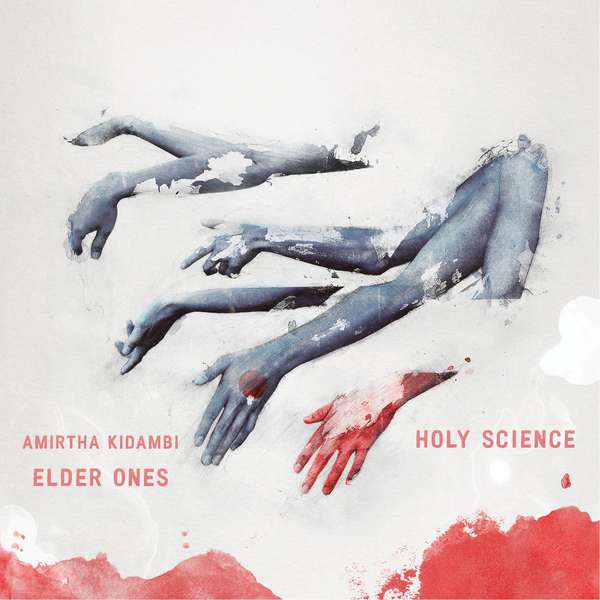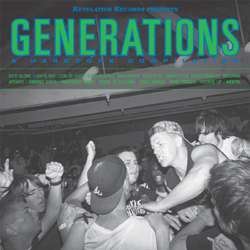Amirtha Kidambi is an intriguing musician, an exploratory musics creator and a stellar singer. Having participated in a number of projects, including Mary Halvorson's Code Girl, Seven Teares and Tongues, with Elder Ones we see her for the first time acting as the band leader. Around her is an excellent cast, comprising of saxophonist Matt Nelson, bassist Brandon Lopez and drummer Max Jaffe, all of which are battle tested musicians of the DIY scene and improvisational world. In this context Kidambi is able to completely follow her avantgarde influences, including towering avant-garde figures as Luigi Nono and Karlheinz Stockhausen, and combining those with the meditative free jazz spirit of Alice and John Coltrane.
In its core, the process followed is drenched in free jazz, with Elder Ones going through different mutations in the case of Holy Science. It feels like there is not a moment of repetition within this work, every note makes an appearance for the first time and every drone has its own characteristic tone. The excellent vocal delivery of Kidambi similarly follows this patters, resulting in an improvisational delivery, where we even get to experience a double solo of sax and vocals in the case of “Tret-Yuga.” It is the levels of energy and the dynamics that make for such an interesting listen, through these four long tracks, where the jazz vibe is able to appear soothing and gentle, offering a background to a certain storyline, but then turning furious and uncompromising. Smooth progression on one hand, and harsh dissonance on the other, with moments where the sax results to Pharoah Sanders-like recitals of inharmonicity highlight this quality of Elder Ones.
However, the dominant aspect of this work does not simply rely on the power of improvisation, but rather on its meditative aspect. Holy Science is a transcendental record, from its individual elements to the full result. Kidambi's harmonium leads the way in bringing in the soothing melodies, resulting at moments when alongside the percussion, grants a prayer-like approach to the movements. The album itself is titled from a 19th century text by Swami Sri Yukteswar Giro, which scientifically explains the yugas (eons of cosmic time in Hindu mythology.) As a result the four movements of the record, explore themes of creation, destruction and rebirth. “Dvapara-Yuga” is even dedicated to the Eric Garner, providing a meditation of his death, becoming one of the most emotional parts of the record, especially in the opening a cappella part and minimal bass interval.
The fourth track, "Kali-Yuga" closes this time cycle with an apocalyptic reset. The ending that we get is exquisite, with Elder Ones hovering over their slow, improvisational settings, but even taking a plunge in more extreme territories with Kidambi exploring the boundaries of her voice, providing some insane throat singing in the process. It ties up Holy Science in the most suitable manner, and provides a reset not only for the yugas, but also for the record.




